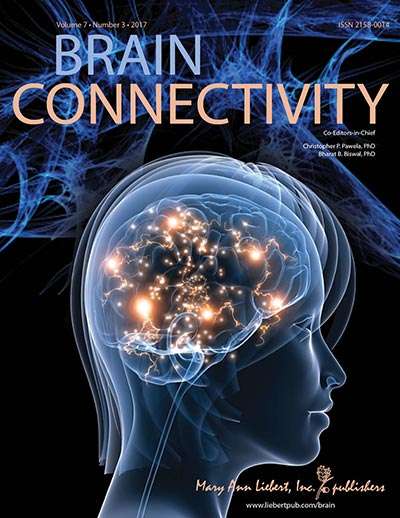Credit: Mary Ann Liebert, Inc., publishers
Researchers compared the thickness of brain cortex in patients with brain tumors before and after radiation therapy was applied and found significant dose-dependent changes in the structural properties of cortical neural networks, at both the local and global level. These alterations and the finding of increased segregation of brain regions essential for thought function may have a role in the delayed cognitive impairment experienced by many patients after brain radiotherapy. This new research is reported in Brain Connectivity.
In the article entitled "Altered Network Topology in Patients with Primary Brain Tumors after Fractionated Radiotherapy," Naeim Bahrami, Carrie McDonald, and coauthors from the University of California San Diego, used MRI imaging to estimate cortical thickness across multiple brain regions. The results demonstrated that radiotherapy to one region of the brain that led to cortical thinning could affect the thickness of other brain regions that are structurally and functionally connected. These global network effects included decreased interactivity and integration of cortical subnetworks, and changes in the distribution of major network hubs in the brain, which are critical for cognitive processing.
"It has been an open scientific question as to whether radiation therapy causes atrophy to brain cortex," states Christopher Pawela, PhD, Editor-in-Chief of Brain Connectivity. "Dr. Bahrami and colleagues have performed an elegant study in which they were able to link structural neurodegenerative changes in cortex to variations in network connectivity between brain regions. Their work provides insights on a possible mechanism of how radiotherapy degrades healthy brain tissue outside the tumor region leading to post-therapeutic cognitive decline."
More information: Naeim Bahrami et al, Altered Network Topology in Patients with Primary Brain Tumors After Fractionated Radiotherapy, Brain Connectivity (2017). DOI: 10.1089/brain.2017.0494
Provided by Mary Ann Liebert, Inc






















